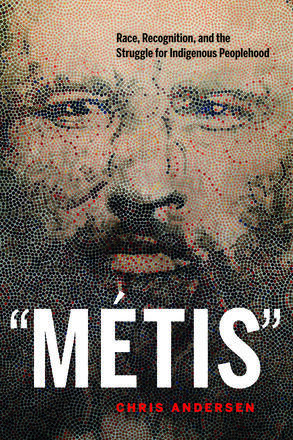
“Métis”
Race, Recognition, and the Struggle for Indigenous Peoplehood
This provocative book makes the case that by defining Métis people as racially mixed, Canada is undermining the ability of the Métis nation to make political claims as a people.
Description
Ask any Canadian what "Métis" means, and they will likely say "mixed race. " Canadians consider Métis mixed in ways that other Indigenous people are not, and the census and courts have premised their recognition of Métis status on this race-based understanding. Andersen argues that Canada got it wrong. From its roots deep in the colonial past, the idea of Métis as mixed has slowly pervaded the Canadian consciousness until it settled in the realm of common sense. In the process, "Métis" has become a racial category rather than the identity of an Indigenous people with a shared sense of history and culture.
Awards
- Winner, NAISA Best Subsequent Book Prize, NAISA 2015
Reviews
“Métis” is, without a doubt, essential reading for everyone who studies the Métis, Indigeneity, and/or race and racialization as it provides a powerful critique of Métis racialization and an example of the impact of racialization on Indigenous nations.
- Monique Giroux
Andersen does a superb job of engaging with the scholarship of the field, allowing the reader to gain a clear understanding of its historical trajectory and where Andersen’s work stands in comparison . .. Métis is an important contribution and I expect that it will spur lively discussions, productive critiques, and shift the scholarship in the field.
- Jill Doerfler (White Earth Anishinaabe)
Andersen's book is thorough and deep, insightful and provocative. Some will find it unsettling. But, for anyone interested in questions of Métis identity, or more generally Indigenous rights in Canada, it is an essential read.
- Dwight Newman